by cidaut | Jan 9, 2020 | Energy
The past 14th November 2019, VALORCOMP consortium met in CIDAUT facilities to monitor all its activities before the end of the year. As usual and close to the end of the project, representatives from the entire consortium attended the meeting: Polytechnic Institute of Bragança (IPB, Principal Beneficiary), CIDAUT Foundation, University of Valladolid (UVa), Resíduos do Nordeste (RN) and Nertatec.
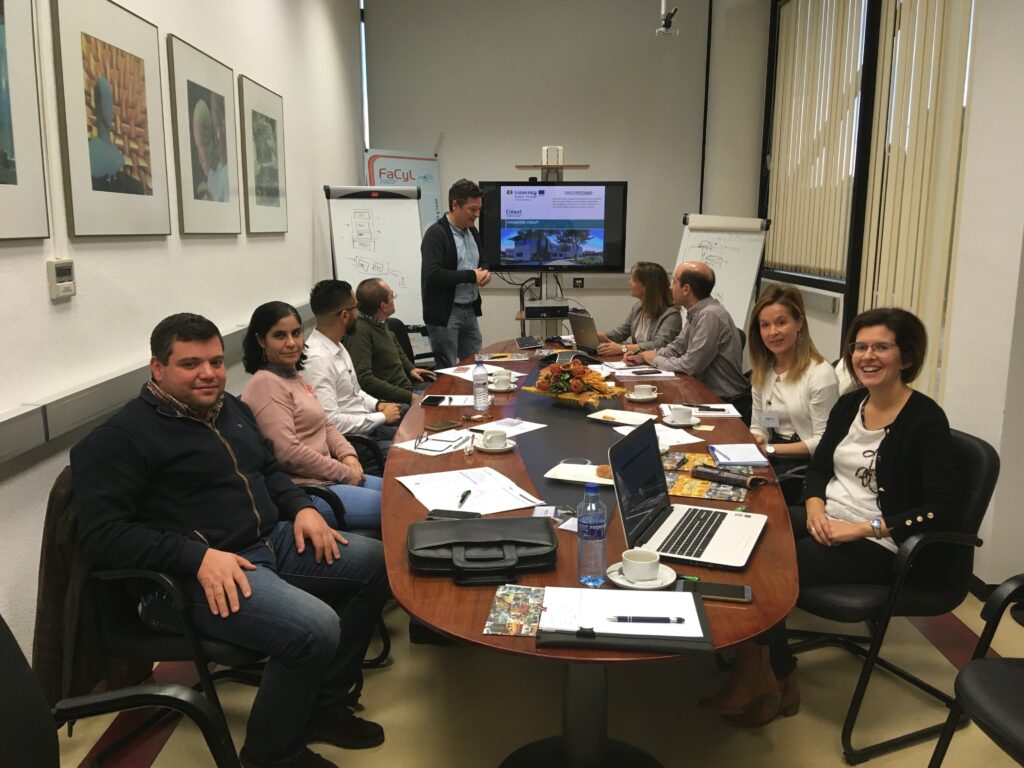
The Coordination commission started the meeting with the objective of evaluating common management aspects. The most significant data was the project request extension agreement until mid-2020 with the objective of disseminating the results of the project. For this purpose, two workshops were agreed, one in Valladolid (Spain) in March 2020 and the other in Mirandela (Portugal) organized by Residuos do Nordeste in April 2020. The project is scheduled to close in June 2020 at the facilities of IPB.
Within the Technical commission, the main objective of the meeting was to share the progress in each of the aspects compost use under study in the framework of the project. CIDAUT presented the results obtained in the pelletization and gasification tests in the pilot plant. Pelletization shows very satisfactory results. The gasification results are under evaluation, but a priori it seems that the low quality of the compost causes the gas obtained to have limited applications. Combustion test in updraft boiler are pending.
IPB presented the conclusions of the adsorption process modeling for CO2 separation using activated carbon from activity 2. The results of compost carbonization were also shown using two different techniques: hydrotreatment (HTC) and functional carbonization using TEOS and EDTA. Activity 2 concluded with the advances in the use of compost in construction materials and the results of temperature tests.
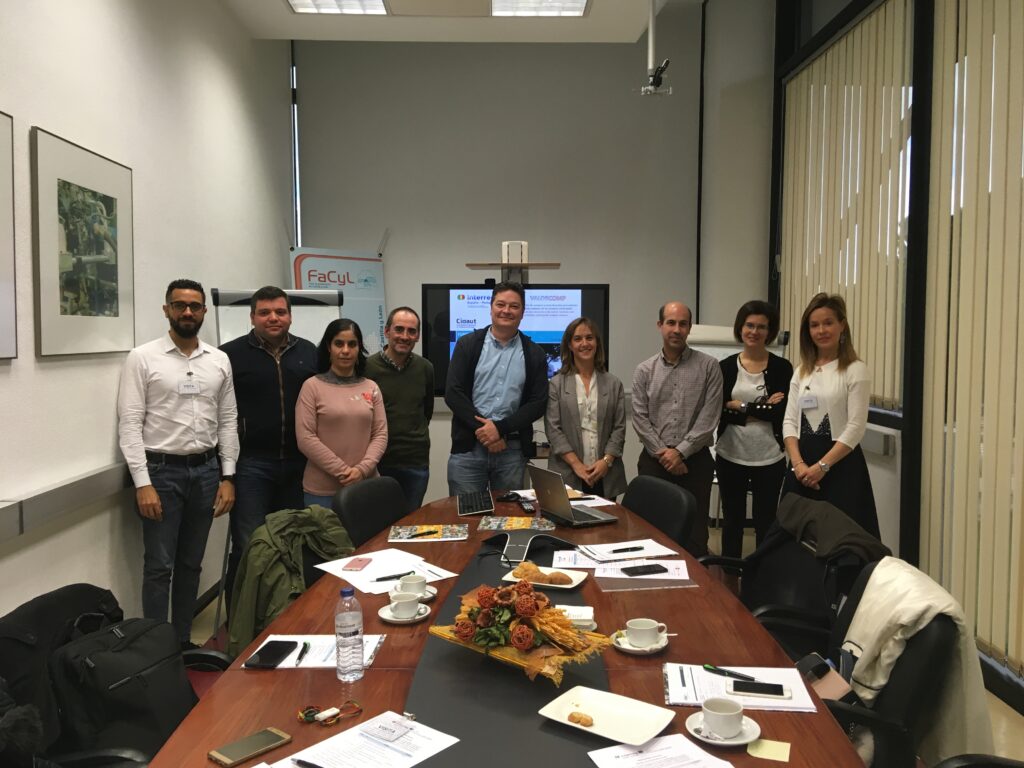
Within the framework of agronomic valorization in activity 3, the UVA presented the results of the technical-economic balance of the nutrient extraction process studied. On this activity, IPB showed a final review of the characterization of the leachates obtained in the Residuos do Nordeste plant to be used as fertilizer.
Nertatec presented the tools developed in activity 4. Two simple tools have been developed for the evaluation of compost quality as a fertilizer and as a fuel for energy use based on the characteristics of the compost. Work is being done on these tools in order to show them to the administrations and entities interested in the project workshops that will be held next year.
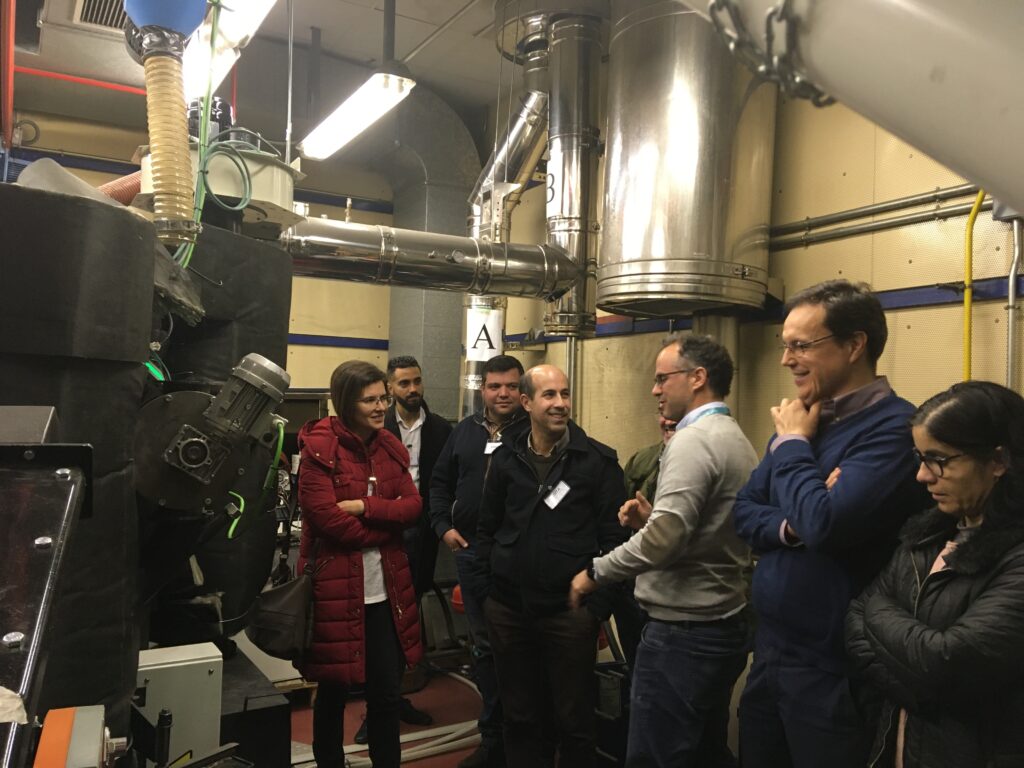
Finally to conclude the meeting it was made a visit to the combustion test facilities in CIDAUT. This experimental pilot plant will be used to carry out the combustion test for thermal valorization of compost. The purpose of the visit was to show VALORCOMP members the test capabilities of CIDAUT and the facilities for such test.
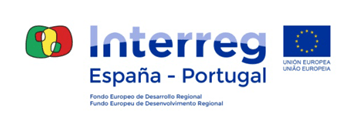
by cidaut | May 17, 2019 | Energy
On March 29, 2019, coinciding at the end of the first quarter of the year, the VALORCOMP consortium met to monitor all its activities. This time, the meeting was held at the University of Valladolid at its headquarters of the School of Industrial Engineering. As usual and once demonstrating the cohesion of the working group, representatives of the whole consortium attended: Polytechnic Institute of Bragança (IPB, Principal Beneficiary), CIDAUT Foundation, University of Valladolid (UVa), Resíduos do Nordeste (RN) and Nertatec.
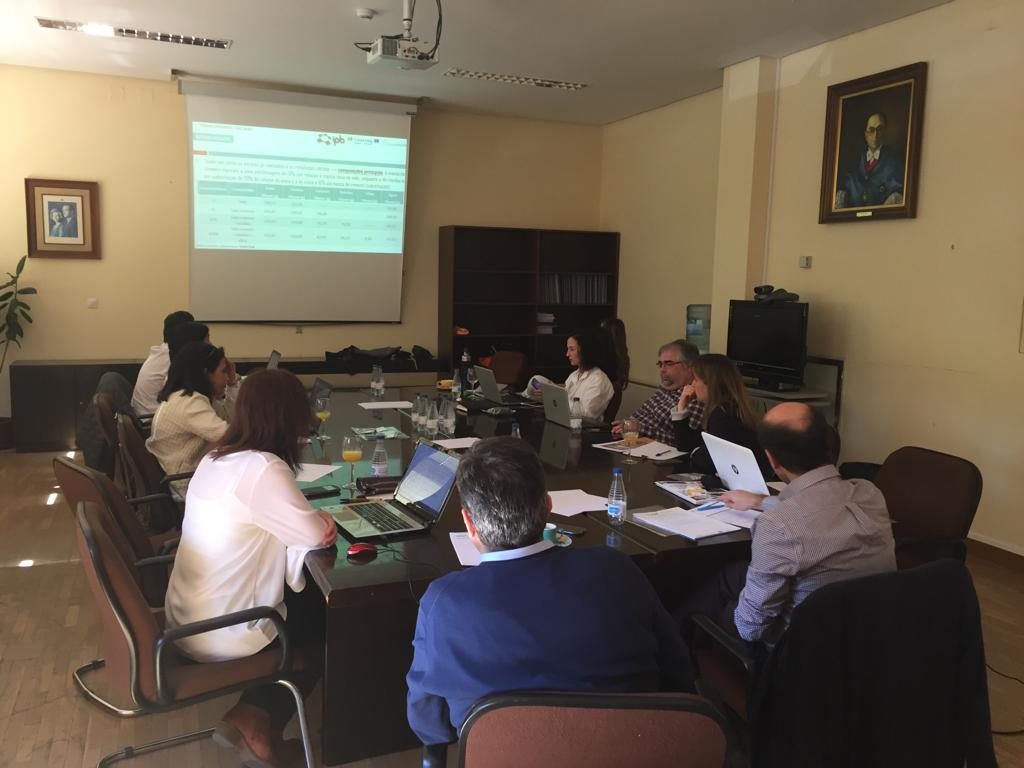
The topics discussed during the meeting were related with the technical, the coordination and communication committees.
Within the technical committee, the main objective of the meeting was to share the progress of the work in each of the aspects of compost use in the framework of the project. CIDAUT presented the results obtained in pelletized compost tests on a real scale, which have been very satisfactory. Likewise, the preliminary results of the pilot scale tests of fluidized bed gasification were shown and the next realization of combustion tests in updraft boilers was proposed. IPB made a presentation on the progress of the modeling of the adsorption process for the separation of CO2 using the activated carbons of activity 2 and it was proposed to carry out validation tests. In the framework of activity 2, the results of carbonization of the compost were shown using two different techniques: hydrotreatment (HTC) and functional carbonization by TEOS and EDTA. Activity 2 concluded with advances in the use of compost in construction materials and the results of temperature tests. Within activity 3 of agronomic use, the UVa presented the results of nutrients extraction using microwaves with water and KOH and it was carried out a comparison with the conventional method. The results seem very promising with this new technique fulfilling the criteria for its use as a liquid fertilizer. The realization of a global technical-economic balance of the process is proposed. On its side, IPB made a review of the characterization of leachates obtained at Residuos do Nordeste plant, highlighting its great heterogeneity and its use as fertilizer. Given the progress of the project, Nertatec made a presentation of the tasks addressed in activity 4 where a collection of waste generation data has been done in Castilla y León waste treatment plants. It intends to be extrapolated to the area of Portugal where the project is being developed. The content of the data sheets elaborated in the activity was explained in order to collect the information of the processes studied and evaluate their potential application.
In relation to communication activities, it was reviewed the publications generated during the project and the next congresses where the results of VALORCOMP will be disseminated. Likewise, it was proposed to hold two workshops of dissemination of the results on dates close to the end of the project. One of them will be held in Spain in July and the other one will be held in the Portuguese area in September.
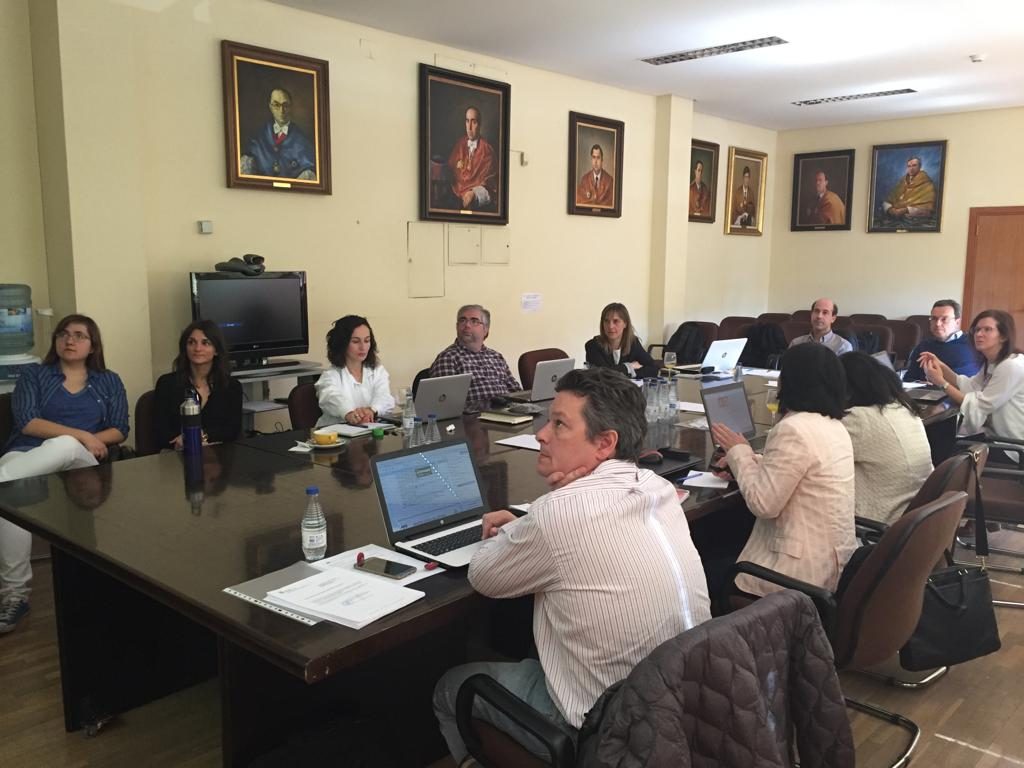
Finally all the partners were summoned to a next meeting in July 2019 in Valladolid with two purposes: to carry out the follow-up meeting of the project and the workshops jointly.
This project is co-financed by the programme of cooperation INTERREG V-A Spain-Portugal (POCTEP) 2014-2020 and will run until September 2019. Project VALORCOMP aims to contribute cooperatively to solve cross-border problems in the valorisation of waste generated in the treatment of the organic fraction of municipal solid waste.

by cidaut | Dec 21, 2018 | Energy
On November 14, 2018, a new meeting of the VALORCOMP consortium was held to present the progress made within the framework of the project. The partners were kindly invited to attend the meeting at Resíduos do Nordeste facilities in Mirandela (Portugal). As usual, representatives of all partners attended the meeting: Polytechnic Institute of Bragança (IPB, Project manager), CIDAUT Foundation, University of Valladolid (UVa), Resíduos do Nordeste (RN) and Nertatec.
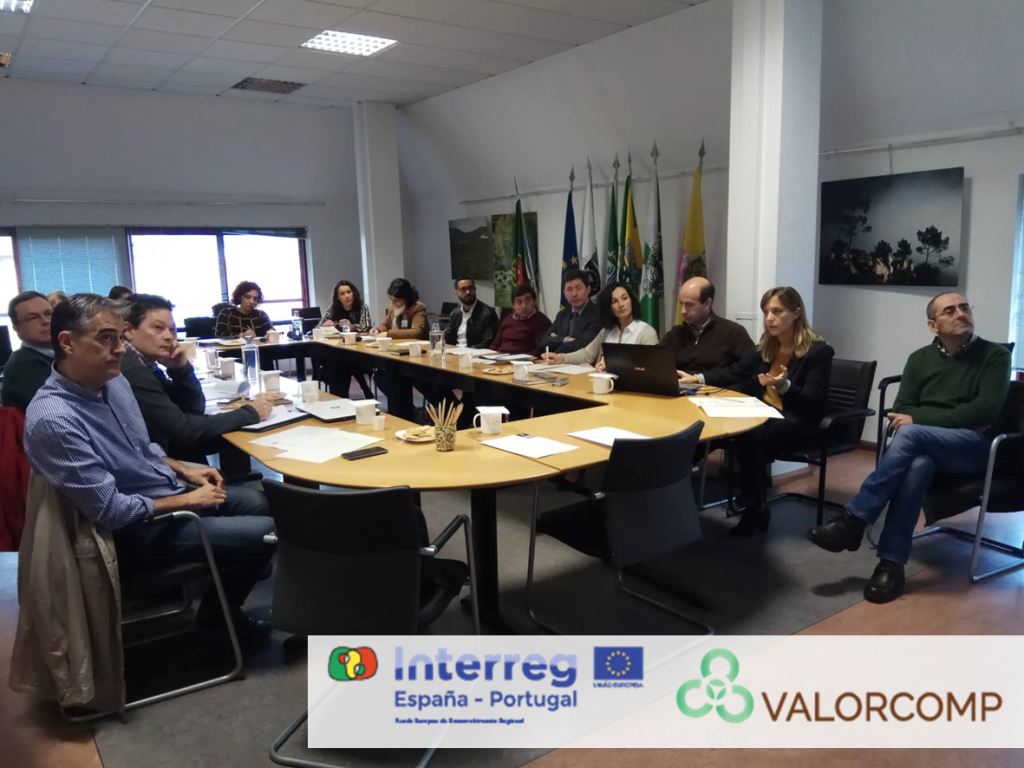
The main objective of the meeting was to share the progress of the work in each of the aspects of use of the compost consider in VALORCOMP project. Thus, within the thermochemical use, the participants of CIDAUT presented their results highlighting the proper compost compaction and the start of the second action of this activity, the pilot scale tests. The IPB presented its results in the context of the use of compost as a material, highlighting the applicability of this material as a catalyst in oxidation processes for wastewater treatment and the possibility of using it as a raw material to be incorporated in ceramics instead of in cements.
For its part, the UVA has obtained a product that meets specifications as a fertilizer in the study of possible agronomic use. The process includes an extraction of organic matter with potassium hydroxide. Germination trials have been conducted using the fertilizer with positive results.
In the course of the meeting, the problem of bio-stabilized residue (composted waste from non-selective collection) was discussed at length. It was focused on the difficulty of using this waste derived from the future regulation of waste reduction to landfill, as well as increasing the percentage of waste prepared for recycling into the treatment plants. Selective collection was analyzed as a solution for obtaining a compost (and not bio-stabilized residue) from the organic fraction, questioning the feasibility of executing it, the cost it would entail for the citizen and if this could guarantee the quality of the compost.
In communication and dissemination activity, it was agreed to undertake a series of actions to strengthen the content of the project’s website and create a private area to encourage communication between project partners. On the other hand, the brochure design was approved to disseminate the project.
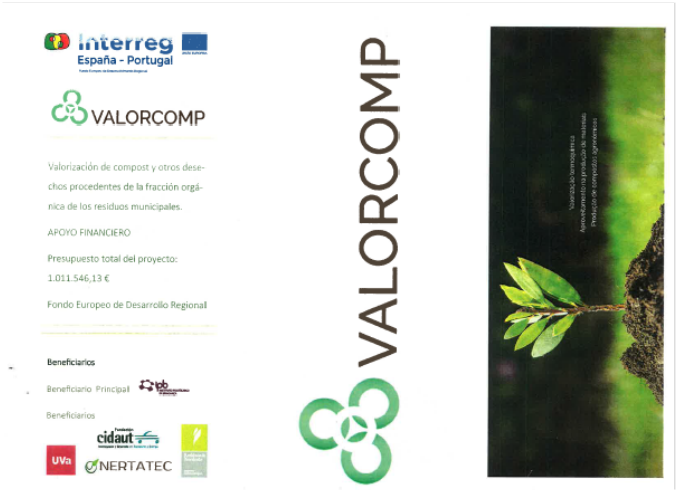
Finally, all the partners were summoned to a next meeting in March 2019 in Valladolid.
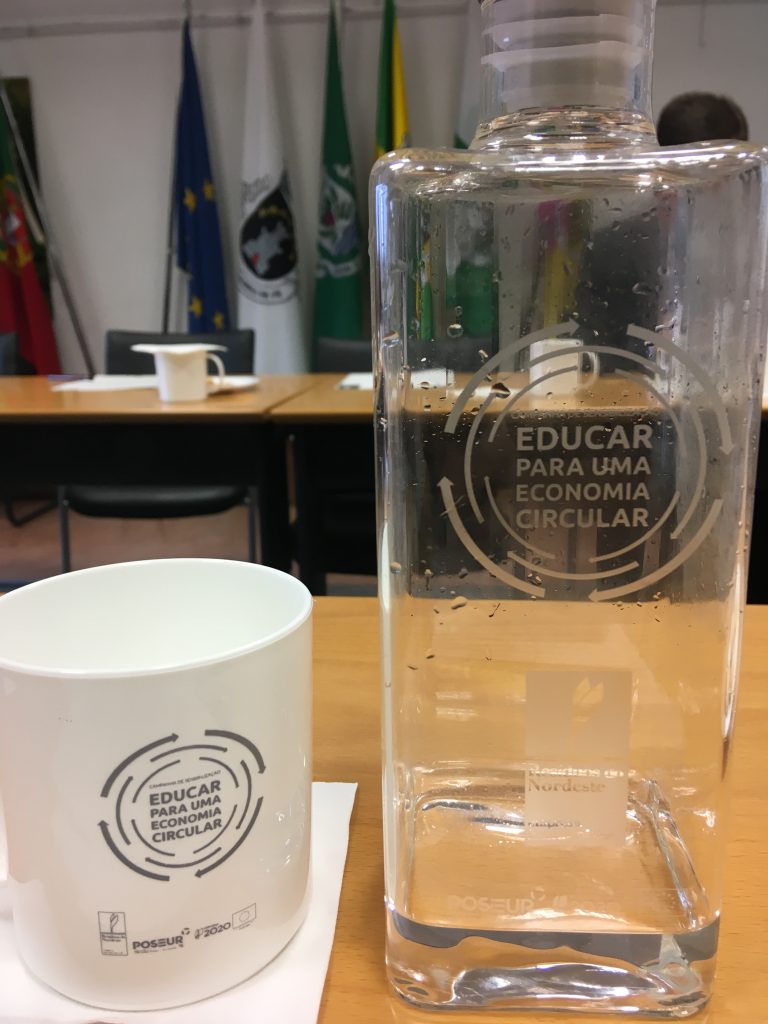
This project is co-financed by the programme of cooperation INTERREG V-A Spain-Portugal (POCTEP) 2014-2020 and will run until September 2019. Project VALORCOMP aims to contribute cooperatively to solve cross-border problems in the valorisation of waste generated in the treatment of the organic fraction of municipal solid waste.

by cidaut | Jul 27, 2018 | Energy
This time, the headquarters of the follow-up meeting of Valorcomp project was the Polytechnic Institute of Braganza, institution that hosted the meeting on June 12. Representatives of all the partners attended the meeting with the presence of the Polytechnic Institute of Bragança (IPB, Principal Beneficiary), CIDAUT Foundation, University of Valladolid (UVa), Resíduos do Nordeste and Nertatec.
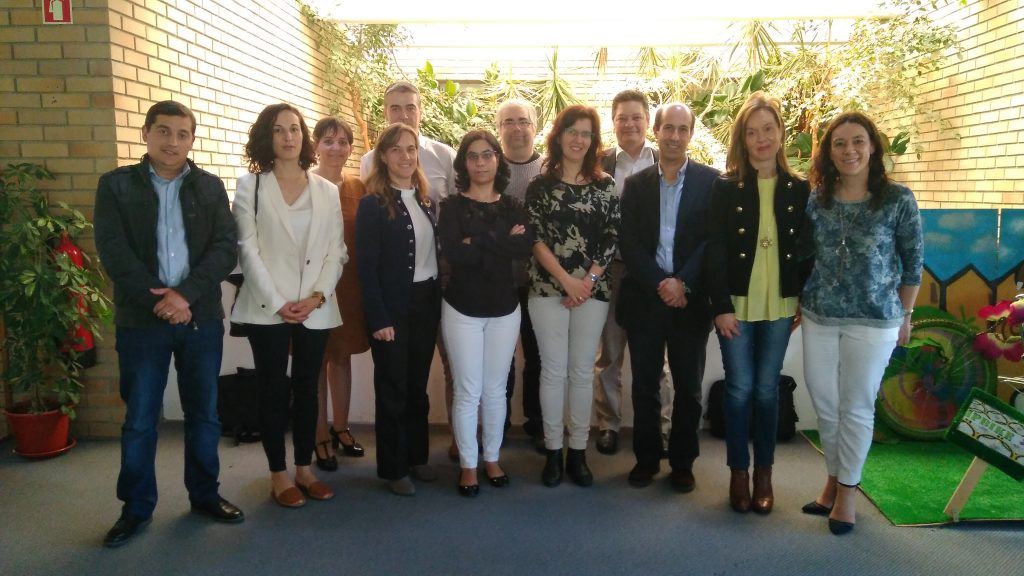
The main objective was the technical review of the progress in those ongoing activities, as well as communication and project coordination activities.
The review started with CIDAUT´s presentation of the densified compost results. The different tests carried out and satisfactory final results were shown. The use of a mould specially designed for the densification process of refining and rejection of stabilized biowaste samples was highlighted. IPB continued with the progress in the synthesis of adsorbent materials and the need to modify the experimental installation to achieve a better performance. Subsequently, IPB presented the advances in obtaining catalyst materials and the clear problem of excessive loss of material. IPB was also in charge of exposing the results in obtaining ecological bricks, the problems associated with the odor of compost in the bricks and the results of fire resistance tests. Finally, the UVa showed the results of extraction of nutrients for the agronomic use of the compost by means of extraction techniques using water, KOH and HNO3 and evaluating the organic carbon, nitrogen and phosphorus recovered. Within this task, IPB concluded with the presentation of the work done in the use of leached water and the need to reduce heterogeneity, alkalinity and certain metals such as Cr and Cd.
Once the technical review of the tasks was completed, a review of the most relevant issues of project coordination and the launch of the COOPERA 2020 coordination platform was made. The last part of the meeting was about dissemination activities of the results. It is important to note the presence of VALORCOMP in the 4th International Congress on Water, Waste and Energy Management (EWWM) to be held in Madrid from 18-20 July 2018 and the 15th European Workshop on Lignocellulosics and Pulp (EWLP 2018) which will take place in Aveiro from June 26 to 29, 2018.
To conclude, all the partners were summoned to an upcoming meeting in September at the facilities of Resíduos do Nordeste, and on behalf of IPB, a visit was made to their laboratories and facilities, which allowed the Spanish partners to learn more about their capabilities.
This project is co-financed by the programme of cooperation INTERREG V-A Spain-Portugal (POCTEP) 2014-2020 and will run until September 2019. Project VALORCOMP aims to contribute cooperatively to solve cross-border problems in the valorisation of waste generated in the treatment of the organic fraction of municipal solid waste.
 Tags: VALORCOMP, compost, residues, POCTEP
Tags: VALORCOMP, compost, residues, POCTEP
by cidaut | Mar 15, 2018 | Energy
On 31ST January 2018, the second VALORCOMP project meeting took place at the CIDAUT Foundation facilities in Boecillo (Valladolid). The meeting was attended by the whole consortium with representatives of all project activities.

The meeting started with a brief technical review of the activities that are being carried out in the framework of thermochemical, material and agronomic use of compost within the project. Each partner exposed the results obtained and the next actions. In a common way, the problem associated with the presence of glass and inert material was pointed out and it will be important in future activities. On behalf of the main industrial partner of the project, Resíduos do Nordeste, emphasis was placed on the concept of Biorefinery to which the waste treatment centers will migrate, as well as the concept of Circular Economy that underlies the entire VALORCOMP project.
Another the relevant point of the meeting was the presentation of the project logo, which has already been accepted by the consortium. The designed logo tries to encompass the three fields of action of exploitation of VALORCOMP project represented by the three circles, deepening in the idea of Circular Economy.
 At the same time, it was made the presentation of the project’s website which is already operational: http://www.valorcomp.ipb.pt. This website will be the showcase of dissemination where the results of the project will be published, as well as all the relevant information, news and events generated. As more content is generated, the information will be expanded, as well as expanding the dissemination channels.
At the same time, it was made the presentation of the project’s website which is already operational: http://www.valorcomp.ipb.pt. This website will be the showcase of dissemination where the results of the project will be published, as well as all the relevant information, news and events generated. As more content is generated, the information will be expanded, as well as expanding the dissemination channels.
Finally, the calendar of the next meetings was set, which will be held at the facilities of the Polytechnic Institute of Bragança and Resíduos do Nordeste in April and July 2018 respectively.
This project is co-financed by the programme of cooperation INTERREG V-A Spain-Portugal (POCTEP) 2014-2020 and will run until September 2019. Project VALORCOMP aims to contribute cooperatively to solve cross-border problems in the valorisation of waste generated in the treatment of the organic fraction of municipal solid waste.

Tags: VALORCOMP, compost, residues, POCTEP












